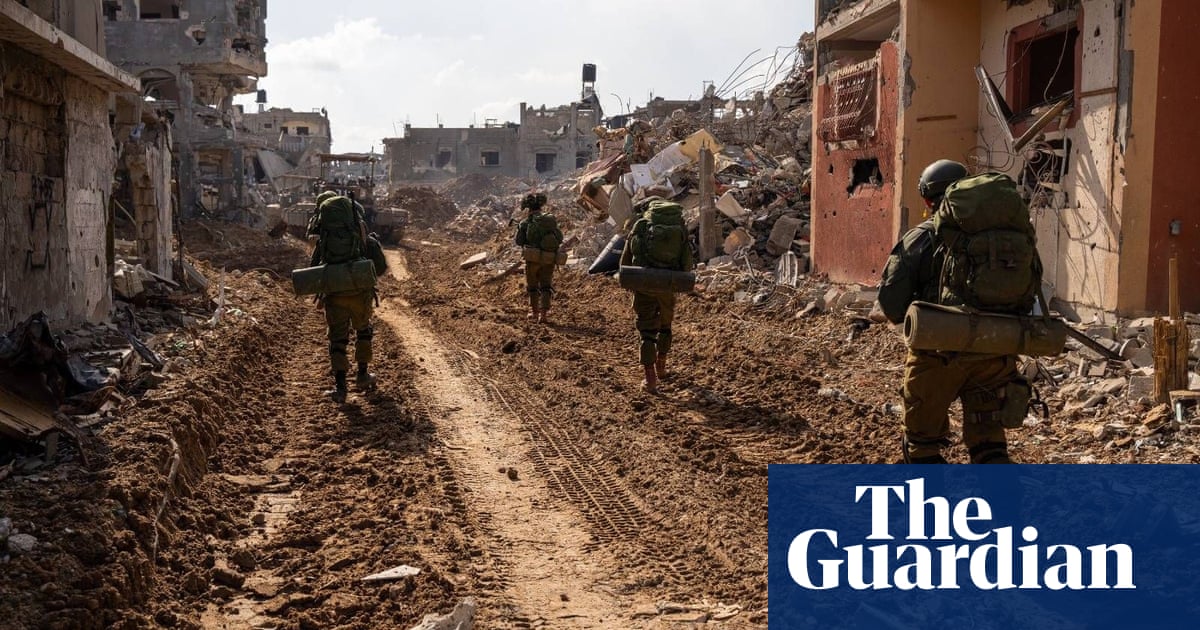As a former IDF soldier and historian of genocide, I was deeply disturbed by my recent visit to Israel

🌈 Abstract
The article discusses the author's experiences and reflections during a visit to Israel in June 2024, amidst the ongoing conflict between Israel and Gaza. It explores the growing sense of rage, fear, and indifference among the Israeli public, as well as the author's concerns about the potential for genocide and war crimes being committed by the Israeli military in Gaza. The article also delves into the historical context and ideological underpinnings of the conflict, drawing parallels to the author's research on the indoctrination of the German army during World War II.
🙋 Q&A
[01] The author's visit to Israel and the disrupted lecture at Ben-Gurion University
1. What was the purpose of the author's lecture at Ben-Gurion University? The author's lecture was part of an event about the worldwide campus protests against Israel, and he planned to address the war in Gaza and the question of whether the protests were sincere expressions of outrage or motivated by antisemitism.
2. What happened when the author arrived at the lecture hall? A group of students had gathered to protest the event, having been summoned by a WhatsApp message that accused the author of signing a petition describing Israel as a "regime of apartheid" and writing an article stating that there was still time to stop Israel from perpetrating genocide.
3. How did the author's interaction with the student protesters unfold? After over an hour of disruption, the author and the panel participants agreed to invite the student protesters to join them for a conversation, on the condition that they stop the disruption. The students, many of whom had recently returned from reserve service in Gaza, engaged in a revealing but not friendly exchange of views with the author.
4. What did the author observe about the student protesters' views and mentality? The author noted that the students were convinced that the IDF was the most moral army in the world and that any damage done to Gaza was justified, denying the existence of hunger and systematic destruction in the territory. They showed the author photos to prove their humane treatment of children and insisted that the destruction was necessary and the fault of Hamas using them as human shields.
[02] The author's reflections on the changing nature of Israeli society
1. How did the author describe the two prevailing sentiments in Israeli society after the Hamas attack on October 7, 2023? The first sentiment was a combination of rage and fear, a desire to re-establish security at any cost and a complete distrust of political solutions, negotiations and reconciliation. The second was an utter inability of Israeli society to feel any empathy for the population of Gaza, with a deafening silence about the suffering of Palestinian civilians.
2. How did the author's friends and acquaintances in Israel respond to the situation? Many of the author's left-leaning, liberal friends recognized the injustice of the occupation but felt that in the struggle between justice and existence, existence must win out, and their own cause must be triumphant, no matter the price.
3. What historical context did the author provide to understand the current mentality in Israel? The author drew parallels between the student protesters' views and the indoctrination of German soldiers during World War II, where they ascribed atrocities not to their own military but to the perceived enemy, justifying destruction through a righteous sense of victimhood.
[03] The author's concerns about the potential for genocide and war crimes in Gaza
1. How did the author's perspective on the situation in Gaza change over time? Initially, the author believed there was no proof of genocide in Gaza, but by the time of his visit, he had become convinced that Israel was engaged in systematic war crimes, crimes against humanity and genocidal actions, particularly after the IDF attack on Rafah on May 6, 2024.
2. What evidence did the author cite to support the claim of potential genocide in Gaza? The author pointed to the rhetoric and actions of Israeli leaders, such as the defense minister's declaration of fighting "human animals" and the goal of "erasing the Gaza Strip from the face of the Earth," as well as the lack of disciplinary action against IDF troops calling for the killing of Palestinians.
3. How did the author's personal connections to Israel and the region shape his perspective on the conflict? The author's deep connection to Israel, as well as his research and experiences as a historian of genocide, made him apprehensive about his visit and led him to shift his view on the potential for genocide in Gaza, despite the reluctance of many Israelis to acknowledge the severity of the situation.